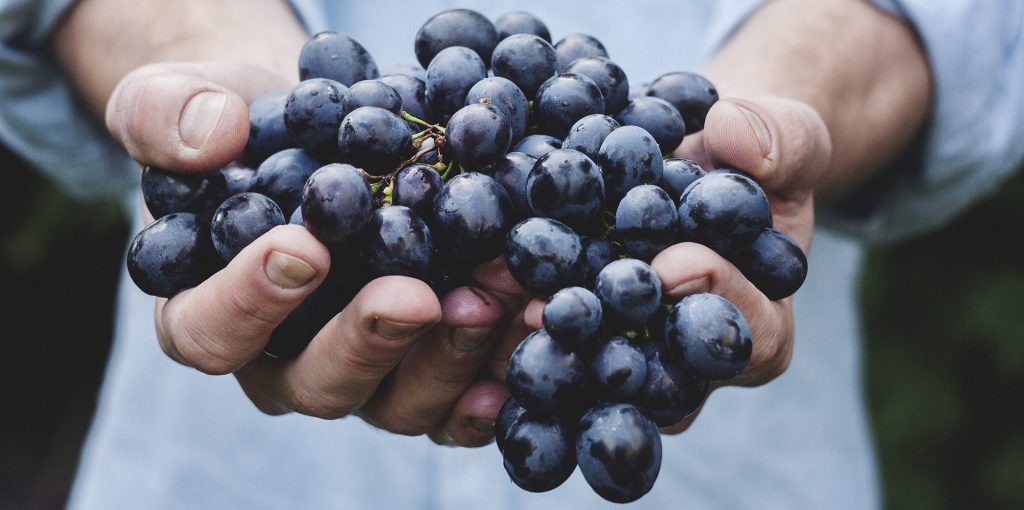Sustainability and wine in Argentina: Just like the vines that join the ecosystem when they sink roots into the land that nourishes them, viticulture is an economic activity that depends upon its environment. It’s impossible to consider its development and future without taking into account a form of sustainability that protects both the environment and natural resources on which it depends and also the wellbeing of the community that lives within it. Fortunately that awareness is ever more present in the world of Argentine wine.
Sustainability and wine: the case for Argentine vineyards
‘Today, a commitment to sustainability means not just reducing the impact of the wine business on the environment but also including techniques of regenerative agriculture that can heal the damage that has already been caused,’ says Facundo Bonamaizón, Agricultural Engineer at Chakana Wines, a winery that is heavily invested in regenerative agriculture through organic and biodynamic methods.
‘We know that economic success depends on protecting the environment through the rational use of natural resources and making a commitment to people and the wider community in which we operate. That virtuous circle is essential to the company’s business model,’ says María Victoria Acosta, Corporate Communication Manager at Bodega Trivento. ‘From a commercial point of view, managing our business sustainably is the only way to build long term ties with our customers, especially overseas,’ agrees Francisco do Pico, Director of Institutional Relations at the Grupo Peñaflor.
But where initially the conversion to a sustainable management and production model was a response to the demands of the export market it is now obvious that these perspectives have been fully assimilated in the light of the challenges being faced by an activity that is heavily affected by the climate crisis and the reduced availability of water, phenomena that are increasingly making themselves felt especially in terms of the scarcity of irrigation water currently being experienced in Mendoza.
‘Mendoza is suffering from a serious water crisis and we, as a sustainable winery, are working very hard on our use of water: we are constantly taking measurements and looking for ways to optimize further. That allows us to reduce our consumption month by month through a range of minor adjustments such as the use of irrigation hoses on automatic timers,’ says Rodrigo Serrado Alou, the oenologist at Domaine Bousquet.
Wineries’ rational management of water is already making a tangible difference. The latest Sustainability Report from Bodega Norton provides evidence of this: between 2000 and 2018 the ratio of water consumption used in the wine making process was reduced from just over 10 litres per litre of wine to 2 per litre. ‘90% of our vineyards now use drip irrigation,’ states the report, which also highlights procedures that monitor and re-use water in both the vineyards and the winery.
Did you enjoy this article? Keep reading, ORGANIC WINES IN ARGENTINA
Energy efficiency and waste management
Efficient use of energy is another essential factor, says Acosta, ‘both to reduce the emission of avoidable greenhouses gases and because of the financial savings. That is why we have set up an Energy Efficiency Programme whose initiatives and investments range from simple practices such as reassessing exterior lighting to the implementation of ISO 50.001. Recently, the winery installed the largest private photovoltaic electricity plant in the Argentine wine industry. Across 918 parcels, it will produce 505MWh/year of clean energy, which represents 10% of demand from the establishment located in Maipú.’
Waste management is another crucial aspect of wineries’ commitment to the environment. ‘At Grupo Peñaflor our system is defined by the 4R philosophy: reduction, re-use, re-evaluation and recycling,’ states a Group report. ‘The pomace (grape skin and seeds) and lees generated during production have been re-conceived as raw materials for alcohol, vinegar, tartaric acid and grapa in partnership with strategic suppliers. The stem separated from the grape is transported to our vineyards to be used as compost.’
In order to reduce its carbon footprint, the industry has undertaken to transform its packaging with an emphasis on the weight of the bottle. Less weight means less energy use involved in transport leading to lower CO2 emissions. ‘In 2009 we partnered with a company named Verallia to create the first ecological bottle on the market, making us pioneers in Argentina in the use of Eco Friendly packaging,’ states the Bodega Norton report.
Social responsibility
However, protecting the environment is just one of the facets of sustainability. The other is a commitment to the wellbeing of the communities where the activity takes place. Argentinian wineries are taking several different forms of action in this regard but a good example is Finca La Colonia, which belongs to Bodega Norton: ‘Most of the staff live with their families at Finca La Colonia, Bodega Norton’s largest vineyard. Currently 45 families are provided with housing, healthcare and education,’ says the report. ‘During work hours, employees are offered child care at a kindergarten that opened in 2012.’
At Chakana Wines’ Finca Nuna, Bonamaizón says that 2.1 hectares have been set aside for a vegetable garden where several different projects are underway: ‘One of the modules involves raising awareness of healthy eating and good nutrition. In one area, vegetables are being produced organically and given to employees. Another sector is dedicated to employees for their own enterprises.’
Bodega Trivento, meanwhile, was the first to set up a satellite school room linked to Secondary Education Level Two (CENS 3-143) with a semi-remote working method within the winery so that employees can complete their studies. It began in 2008, says Acosta, ‘and since then three three year cycles have been completed, the fourth is underway and the result is 73 partners with secondary degrees and 3 with primary school degrees.’ Additionally, in 2012 Trivento implemented a scholarship programme for technical specializations and a post-graduate course for company workers which was then expanded to children of employees and the wider community.
Another example of social responsibility is joining Fair Trade programmes that certify good practice in labour relations. A pioneer in this regard was Bodega Alta Vista, which in 2011 obtained a Fair Trade certification for its vineyard and winery operations, creating the Asociación Flores del Monte, which involves the company and its workers, managing income from the sales of its Fair Trade wine.
As a result, the Association was able to purchase dental equipment and make improvements to the facilities of the local rural health centre (Centro de Salud 202, Solar de Cuyo). Andrea Serna, treasurer and representative of Alta Vista in the organization, hailed the efforts of the entire team: ‘Once again we are overwhelmed by the work and commitment demonstrated by everyone involved in the Asociación Flores del Monte. It is these kinds of initiative that allow our workers to improve their quality of life, giving the work done in the vineyards a genuine community feeling.’
Several Argentinian wineries have obtained Fair Trade certification for wines that can be enjoyed overseas. These include: Finca Monteflores Malbec (Bodega Alta Vista); Temprano Malbec (Bodega Norton) and Tilimuqui Torrontés Orgánico (Cooperativa La Riojana).



